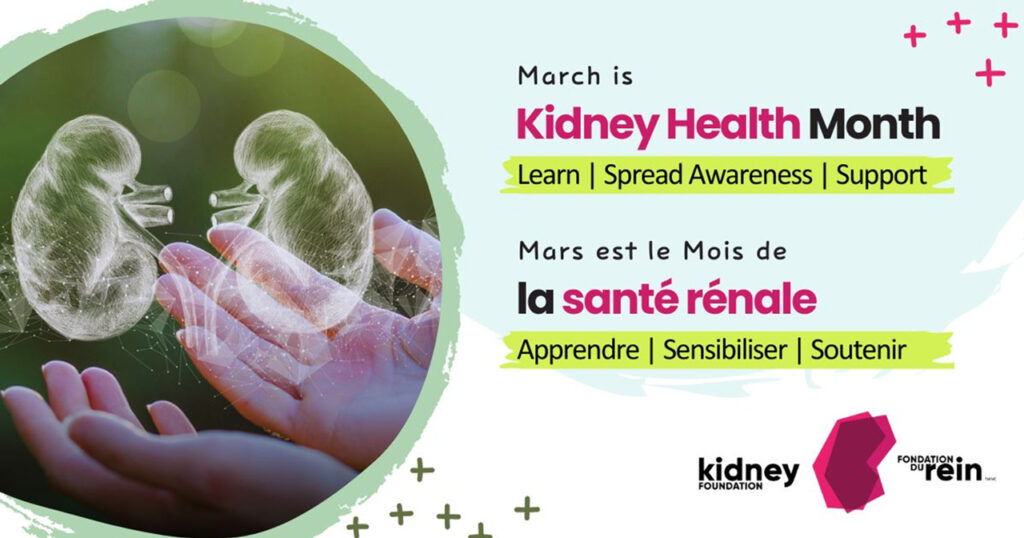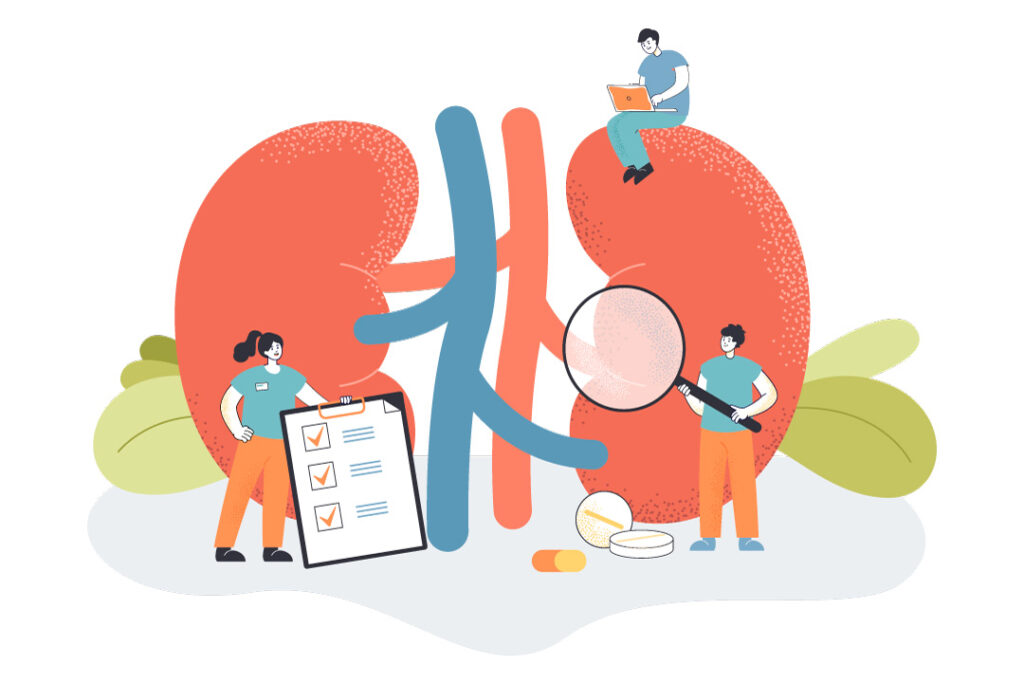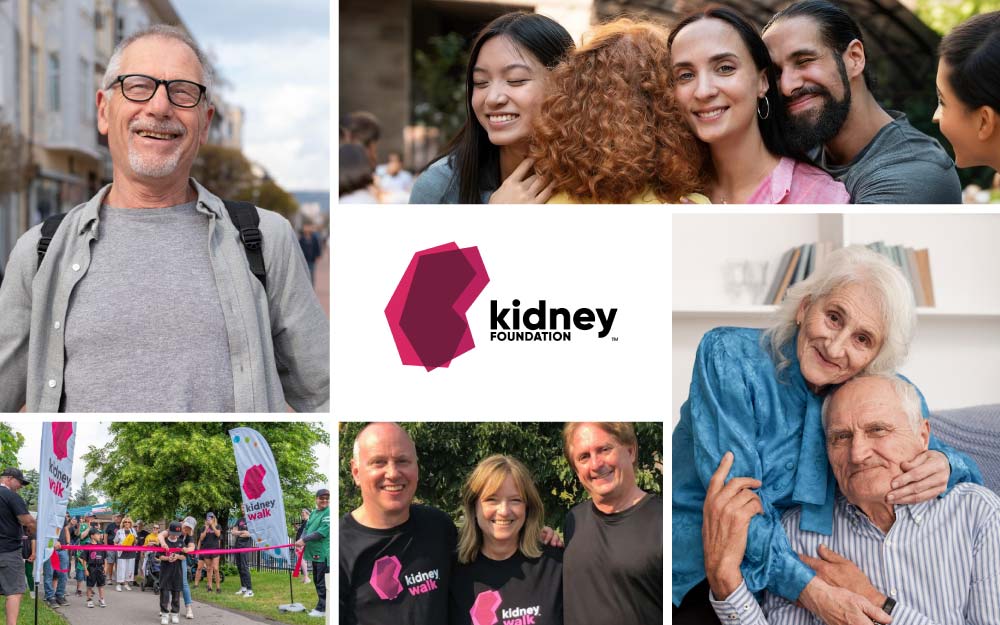March is Kidney Health Month in Canada. As well, throughout the world, many countries hold special events for their own World Kidney Day – the 2024 theme is Kidney Health for All – Advancing equitable access to care and optimal medical practice.

In Ontario, support for people with kidney disease comes through The Kidney Foundation of Canada. One in ten Canadians have kidney problems and the number of people diagnosed annually continues to rise, particularly with high incidence rates of diabetes and high blood pressure. While thousands of Canadians have received kidney transplants, many more are on waiting lists hoping to find a match for a life-sustaining transplant.
The Foundation provides financial and personal support and advice, fund and grants for research, and camps.
Through innovative breakthroughs in medical science in the 20th century, kidney treatment saw the arrival of two major achievements:
- hemodialysis (which uses advanced equipment to cleanse the blood thus replacing kidney function)
- organ transplantation.
In 2024, kidney failure is no longer the end of the road for those who are affected.
There are two types of kidney problems, kidney disease and kidney failure.

Kidney disease
A lot of people with kidney disease find that they can maintain a good quality of life by taking steps to improve their physical, emotional, and social well-being. These steps can include:
- Taking medications as prescribed
- Following a kidney-friendly diet
- Taking part in regular physical activity
- Building a support network
- Developing a personal care plan
Kidney Failure
When one or both kidneys have failed, the two main ways forward are with dialysis and/or with a transplant. As finding a kidney that matches can take time, most people with kidney failure will first (or always) be on dialysis.
Dialysis
Dialysis the blood and removes excess fluid from the body when kidneys no longer function. It helps people to live a life as similar as possible to the one they had before their kidneys failed, but it is a treatment, not a cure and doesn’t repair or heal. Usually once people begin dialysis treatments, they will be on some form of dialysis for the rest of their lives, unless they have a successful kidney transplant.
Transplant
With advances in kidney transplant methods and anti-rejection medications, a kidney transplant is considered the best way to treat kidney failure for many people. It can result in a quality of life similar to “normal”. For people who are healthy enough to be eligible for a transplant, a new kidney can last for many years.
While it is the best method, it may be a long wait to find an eligible donor. Donations can come from someone who died suddenly, called a deceased donor, or from a family member, friend or stranger with a compatible kidney, called a living donor.
Research
The Kidney Foundation’s Research Program has grown to become one of the most important sources of funding for scientists conducting kidney-related research; research dollars are given through grants, fellowships and scholarships.

Futures medicines and cures can only come through advanced research and development. This can only result from the ever increasing need for research dollars. This funding comes from campaigns such as that of Federated Health Charities. So give generously to the 2024 campaign.







